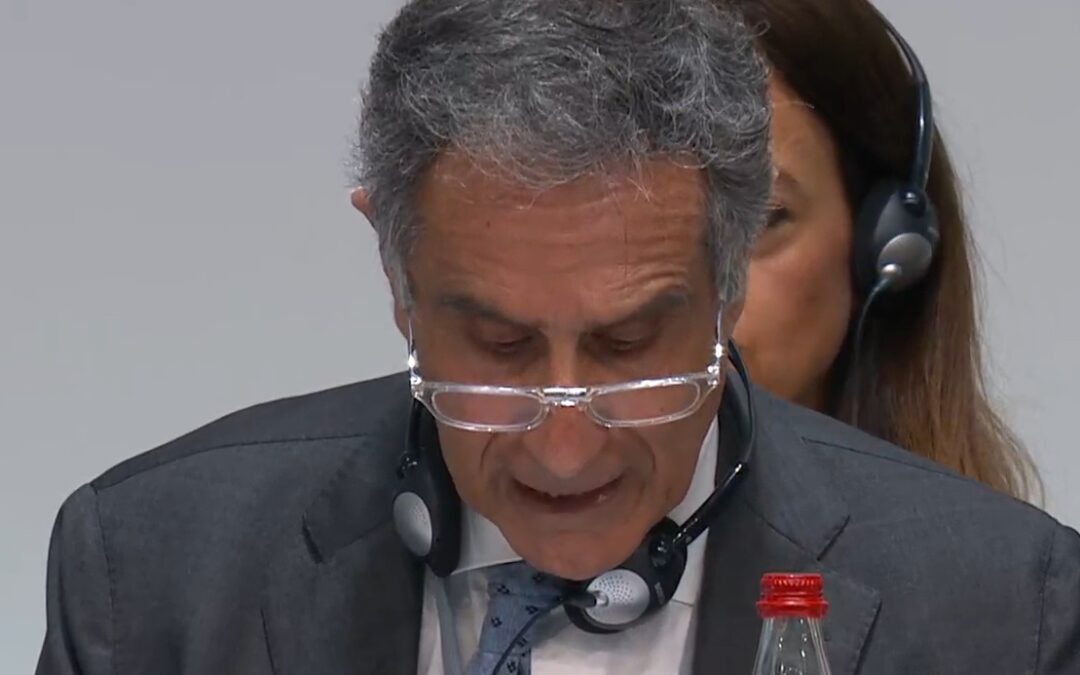Accountability in Protecting Shared Marine Resources at the Panel “Promoting and Supporting All Forms of Cooperation, Especially at the Regional and Subregional Level”. This was the key message that emerged during the 8th panel held on 12th June, organized as part of the UN Ocean Conference in Nice.
In this context, leaders from island nations, least developed countries, and coastal States urged accelerated action, stronger accountability, and climate-resilient solutions to protect shared marine resources and the communities that depend on them.
The 8th panel discussion was moderated by Ms. Cynthia Barzuna, Deputy Director of the Ocean Program at the World Resources Institute, and co-chaired by Ms. Leila Benali, Minister for Energy Transition and Sustainable Development of Morocco, and Mr. Claudio Barbaro, Undersecretary of State for Environment and Energy Security of Italy. Ms. Funmi Balogun, Resident Coordinator in Timor-Leste, served as the lead discussant.
In his intervention, Mr. Claudio Barbaro, Undersecretary of State for Environment and Energy Security, delivered a significant statement highlighting the importance of scientific research on the oceans — particularly the need for coordinated and standardized collection and management of environmental data.
Mr. Claudio Barbaro proudly showcased the work carried out by the Barcelona Convention, through its Regional Activity Centre for Information and Communication (INFO/RAC), hosted by Italy.
The project has been recognized as a best practice in the process of defining the United Nations Global Strategy on Environmental Data — a clear sign of the growing awareness in the Mediterranean region of the importance of data-driven environmental governance.
During the Panel 8, Ms. Tatjana Hema, Coordinator of the Barcelona Convention, presented the outcomes of the twenty-fourth Global Meeting of the Regional Seas Conventions and Action Plans.
The meeting reaffirmed the importance of regional and subregional cooperation in tackling ocean-related challenges and emphasized multilateralism, enhanced coordination, and alignment with key global frameworks. These include the Agreement on Marine Biodiversity of Areas Beyond National Jurisdiction (BBNJ), the Kunming-Montreal Global Biodiversity Framework, and the upcoming Plastics Treaty — all critical to addressing climate change, marine biodiversity loss, and pollution.
The panel concluded with an interactive discussion featuring representatives from Member States, as well as speakers from civil society.

